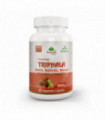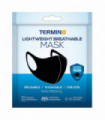Spirulina is a type of cyanobacteria (blue green algae or 'sea plants') that grows in tropical and subtropical regions, in certain lakes near volcanoes, which have predominantly alkaline water (pH of 8-14) and abundant mineral deposits. Vast reserves of this powerful biomass are particularly found in Mexico and central and east African nations. Spirulina was first documented in ancient history as a green cake called “dihe” which was consumed by marathon runners in the Aztec civilization, for enhanced stamina. Currently, apart from its raw and pure sources, it is also being extensively cultivated in cities worldwide. It is then dried and prepared as a food, food additive or dietary supplement in the form of tablets and powders, as it contains noteworthy amount of vitamins, minerals and antioxidants and is regarded as a superfood.
A natural low glycemic index food, spirulina is very rich in the vital trace element – iron, which is required for healthy blood cell formation in the body. It is high on protein content as well, with the added advantage of its protein quality being excellent and supplying all the essential amino acids (substances that bind together to form proteins). Being low on calories, carbs and cholesterol, it is also packed with the goodness of the B vitamins required for energy metabolism and healthy nervous system functioning. Moreover, it contains significant quantities of the minerals – copper, potassium and magnesium, which help in fortifying bones and maintaining electrolyte (salt) balance in the body.






















